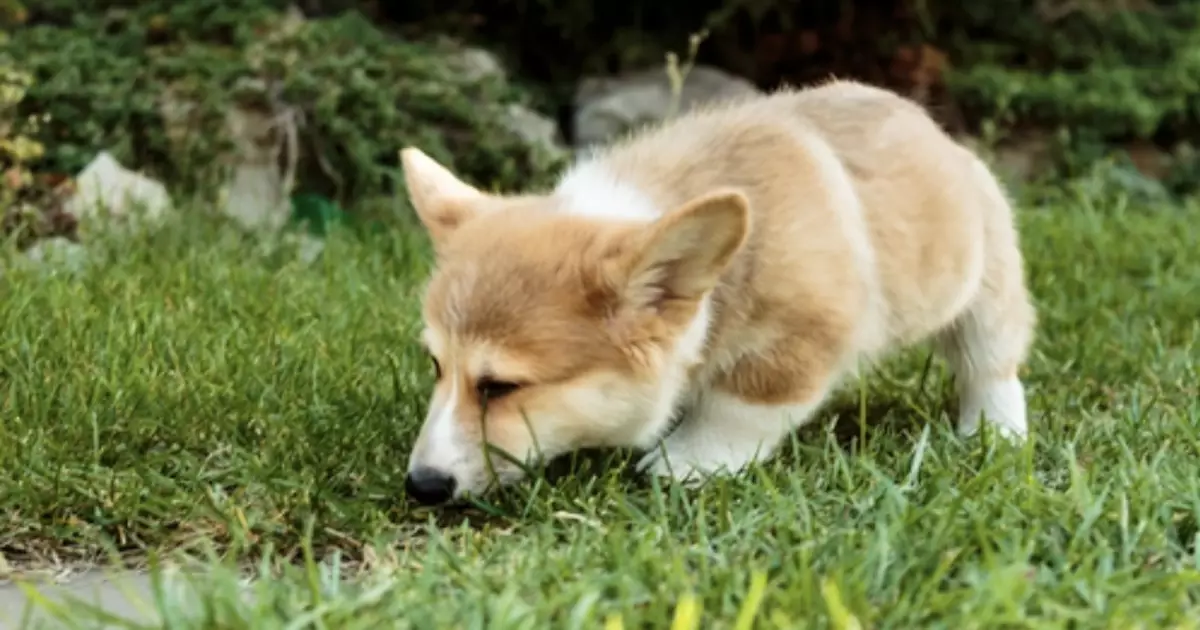Dogs, our beloved companions, often engage in peculiar behaviors that leave their owners puzzled. One such behavior is their tendency to munch on grass. While this may evoke concern, it’s a surprisingly widespread occurrence in the canine world. Rooted in instinctual habits passed down from their wild ancestors, this behavior is often harmless and can provide insight into various underlying factors associated with a dog’s health and well-being.
In the wild, canine ancestors such as wolves and coyotes had diets that were not solely carnivorous. They ingested plants and vegetation incidentally while hunting or scavenging, leading to the natural inclination seen in today’s domesticated dogs. This innate foraging instinct may prompt them to nibble on grass, reflecting their evolutionary survival strategies rather than an essential dietary requirement.
Dogs, much like humans, require fiber in their diets for optimal digestive health. A lack of fiber can lead to digestive problems, including constipation. Thus, dogs might instinctively turn to grass as a natural source of plant-based roughage. Grass, rich in fiber, might appeal to a dog’s inherent need to alleviate digestive discomfort by providing the roughage necessary for smoother bowel movements. This natural behavior can be viewed as a self-regulating mechanism to help maintain gut health.
Additionally, the fibrous texture of grass may serve as a gentle laxative for dogs that are experiencing constipation. While not all instances of grass consumption are linked to digestive issues, it is plausible that some dogs use this behavior as a means to address gastrointestinal distress, effectively seeking out a remedy in nature.
In other cases, grass-eating can be symptomatic of behavioral issues, particularly boredom or anxiety. Dogs that are left alone for extended periods or lack sufficient exercise may resort to destructive or unusual behaviors, including grazing on grass. High-energy breeds are especially susceptible to mischief if they do not receive enough physical and mental stimulation. In such instances, increasing interactive activities and playtime can help mitigate this behavior, fostering a more enriching environment for the dog.
Moreover, dogs might consume grass as a coping mechanism for dealing with stress or anxiety. Similar to how humans might indulge in comfort food, canines may nibble on grass out of emotional response. Awareness of a dog’s emotional state and providing appropriate mental engagement may significantly reduce instances of grass eating as an outlet for pent-up energy or anxiety.
In addition to instinctual behaviors, nutritional deficiencies can motivate dogs to consume grass. If a dog’s diet lacks essential nutrients, they might seek alternative sources to fulfill their dietary needs. Dogs fed low-quality commercial food or unbalanced homemade diets may be more likely to exhibit grass-eating tendencies as they look for missing vitamins and minerals. Monitoring the quality and balance of your dog’s diet is crucial to ensure they receive the appropriate nutrition necessary for their health.
An additional concern that manifests in some dogs is the condition known as pica, characterized by the compulsive consumption of non-food items. While the exact origins of pica are not well understood, it can sometimes arise from underlying nutritional imbalances, boredom, or stress. If a dog appears to excessively eat grass to the point that it affects their health or behavior, consulting with a veterinarian is essential to rule out any serious medical or psychological issues.
Curiosity is an intrinsic characteristic of dogs. Young dogs and puppies, in particular, often engage in exploratory behavior through chewing and tasting. Nibbling on grass can be part of their natural inclination to investigate their environment. For these dogs, grass-eating is typically harmless and a normal part of their exploration process.
Furthermore, dogs are social creatures. Observing other animals, including fellow dogs or farm animals grazing, can influence their behavior. If a dog sees others munching on grass, they may imitate this behavior out of curiosity or a desire to connect with their social group.
Ultimately, while dogs eating grass may seem perplexing, it is commonly accepted as part of their behavior, typically lacking serious health implications. Factors driving this behavior can range from instinctual foraging and dietary self-regulation to curiosity and emotional responses. However, dog owners should remain vigilant: frequent grass consumption accompanied by signs of distress, such as vomiting or lethargy, warrants a conversation with a veterinarian to ensure the dog’s health. With understanding and proper care, these quirky canine behaviors can be managed or embraced as part of the dog’s unique personality.

